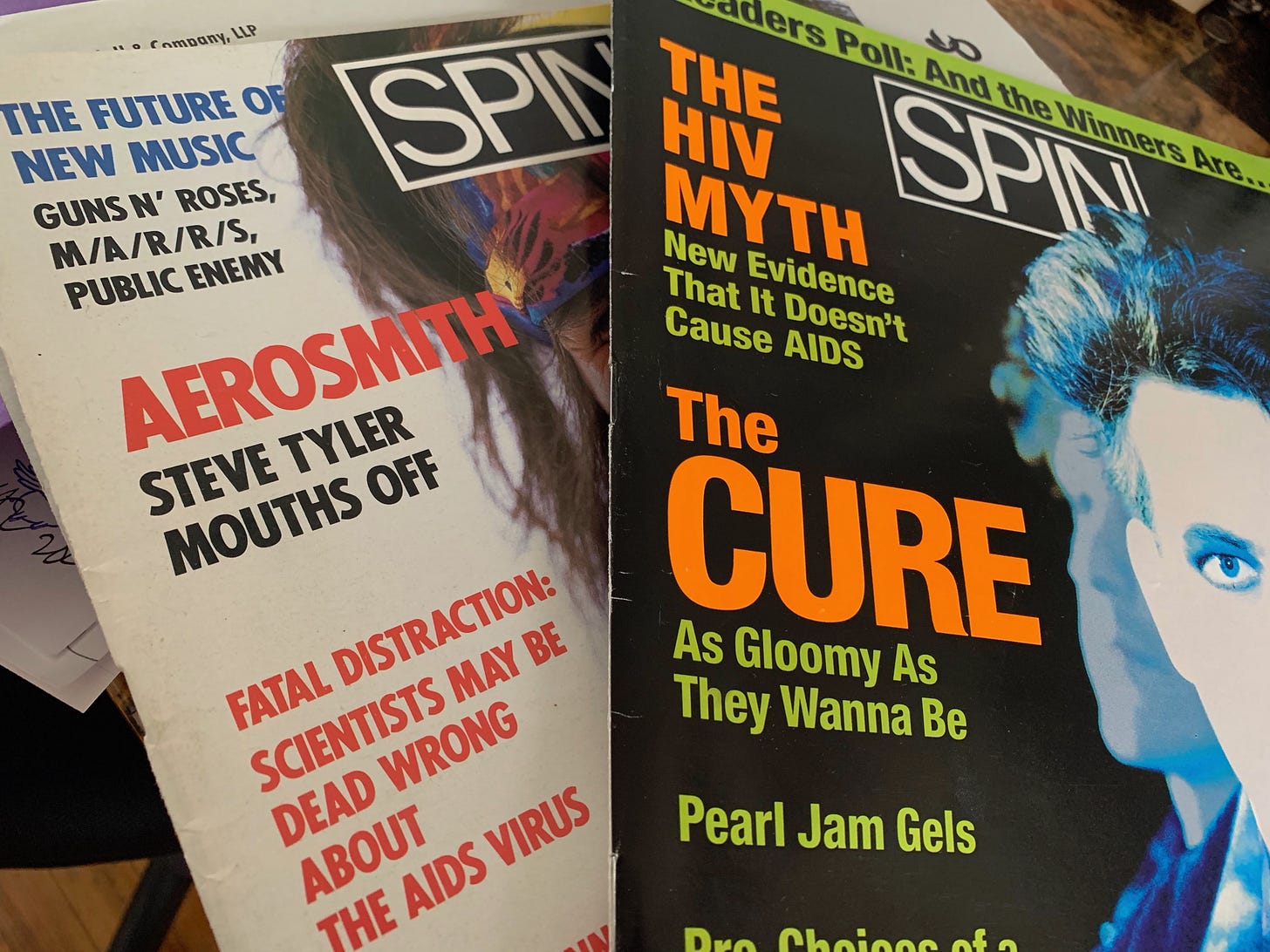The best article I've read about Fauci
Anthony Fauci is in the news. The best article I've ever read about him is by Celia Farber, and it will only take 10 minutes to read.

Most things that fill a thick book with narrow margins would make a much better article. Such is demonstrated by my twin-sister investigative reporter Celia Farber’s 1,600-word comment on Fauci, posted to Planet Waves FM one year ago.
It’s called America’s Doctor: It’s Not Just That He’s So Boring, and it’s all you really need.
In case you’re curious, here is my interview with Celia from earlier this year, which was more like a therapy session (for me). I still have lots of other questions — maybe she’ll come back onto the program.
Celia has been watching Major League Virus antics from the dugout since the mid-1980s when she was a student at NYU and an intern for the rock magazine SPIN. By some karma, dharma, miracle or mishap, she emerged as one of the very few wholly sincere, full-time reporters on the story. (She was not in the press box watching from afar; she was near many of the major players and had direct access.)
Celia brings to her comments on this issue the one thing that you need the most from someone who has been involved for decades: PERSPECTIVE. As she says in this article, we all placed too much emphasis on Robert Gallo. It was Fauci all along.





Mike,
I am very interested in the causes not merely of autism but of its explosion the past 40 years. Could there be so strong of an effect without a cause? The question is, what is, or are, the causes?
The photo illustrates in physical form the number of scheduled injections children of today are given. We got about five or seven.
Unlike when we were kids, this injection campaign occurs under legal indemnity, with the federal government itself being the entity sued in an HHS court of claims when there is a claimed injury — a moot court where there is no jury and no discovery.
If you look at autism rates vs. vaccine saturation, the curves track one another. That may not be causation, but it is at least evidence of an effect that must be studied, with the correlation proven or not. The rest of the evidence is lacking because we cannot sue the manufacturers and compel them to disclose it.
Approximately 100% of what I can tell you about industry’s foreknowledge of the dangers of PCBs and dioxins comes in the form of documents that have Bates numbers and plaintiff’s exhibit tags on them, or from lengthy depositions. Without the legal discovery process, we know exceedingly little about what industry itself knows — specifically — about the dangers.
Further, when asked, the industry’s reps told Reagan (prior to his signing The Act of 1986, granting the indemnity) that the reason the industry needed indemnity was because the injections are not "100% safe" and cannot be made safe, hence, they argued for this buffer between themselves and the consumers.
Where is the safety data, backed by internal documents and extremal review of the facts? If they are not safe, then what are the dangers?
The situation is similar to the pearl clutching over cancer, with one difference. Why why why? What causes it? We could start by looking at the effects of ubiquitous dioxin-related (and other endocrine disrupting) compounds and what those lab tests revealed. I can send you some of those documents.
There is no indemnity for industrial chemicals; the lawsuits happen and the paperwork come out. Juries and judges adjudicate Roundup. There is something to discuss, something to evaluate. How is it possible to take a position on vaccines without all of the data, or better said, what do we do in the face of missing information?
What, exactly, do the vaccine makers know about the connection to autism? I reckon it is fair to say they know whatever there is to know; and we do not know much.
In such instances, I apply the precautionary principle: assume the worst until the data is available. If you want to do a “Where’s Your Data?” benefit, sign me up.
I met Jon Rappaport in 1999 in California. I started reading nomorefakenews.com when he began writing it. He was the first person I heard dismiss the notion of the virus as a deadly pathogen. I read his book, Aids Inc, and then I forgot about the controversy over the virus. This truth has been in the wind for a long, long time. I missed the AIDS Dissidents movement all together. I did have a friend who was prominent in ACT UP and a consort of Peter Staley. Back in 2014 I mentioned to my friend that it was possible there was no virus that was the cause of AIDS. When I say he went ballistic, it's an understatement. As for what I think and I am a relative nobody in the digital scheme of things, it is high time that we who are fortunate to know the truth, to understand that germ theory is a false paradigm and that the pandemic never occurred stop holding back and coddling the rest of the crowd. Thank you Eric and Celia for all that you have done. Onward!